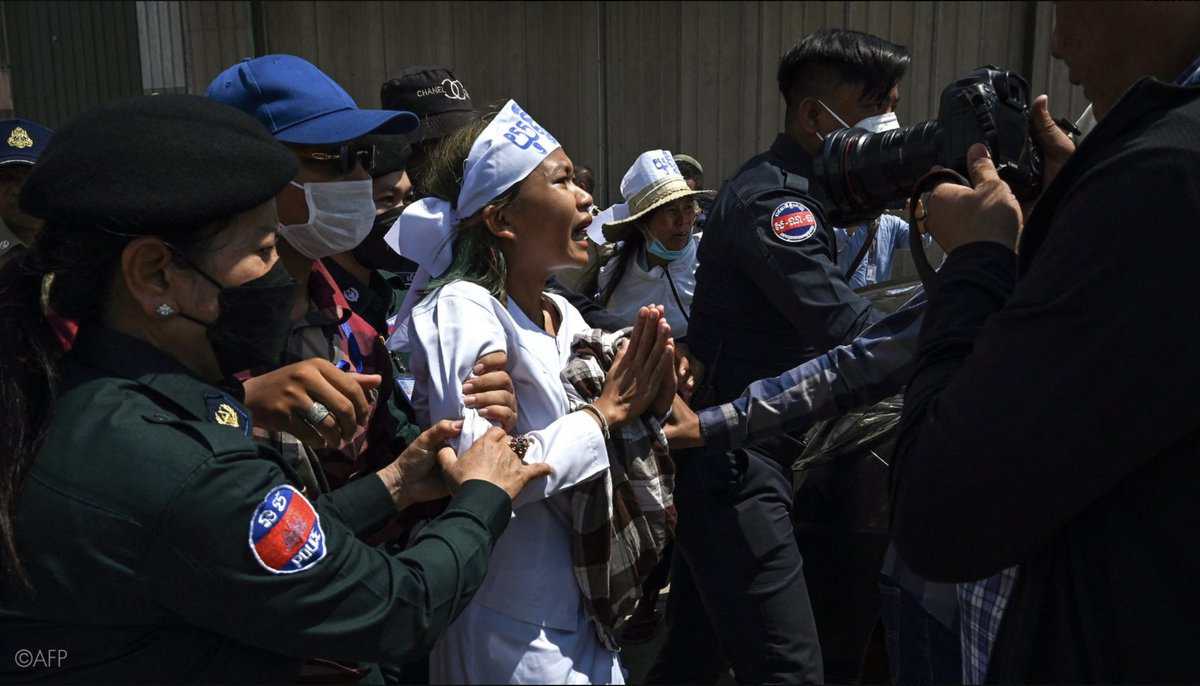Report on the WHO Barcelona Course on Health Financing for Universal Health Coverage
Introduction and Strategic Alignment with Sustainable Development Goals
The World Health Organization (WHO) Barcelona Office for Health Systems Financing has announced its annual intensive training programme, the WHO Barcelona course on health financing for universal health coverage (UHC), scheduled for 20–24 October 2025. This initiative, supported by the Government of the Autonomous Community of Catalonia, Spain, is fundamentally aligned with the 2030 Agenda for Sustainable Development. Its primary objective is to build capacity among policy-makers to design and implement health financing reforms that accelerate progress towards achieving the Sustainable Development Goals (SDGs), particularly SDG 3 (Good Health and Well-being).
Course Objectives and Emphasis on SDG Targets
Advancing SDG 3: Good Health and Well-being
The course is strategically designed to address SDG Target 3.8: Achieve universal health coverage, including financial risk protection, access to quality essential health-care services and access to safe, effective, quality and affordable essential medicines and vaccines for all. Health financing policy is identified as a critical lever for achieving UHC. By equipping participants with advanced knowledge and skills, the course directly contributes to strengthening health systems, a core component of ensuring healthy lives and promoting well-being for all at all ages.
Interlinkages with Other Sustainable Development Goals
Effective health financing contributes to a broader spectrum of SDGs beyond SDG 3. The course content implicitly addresses:
- SDG 1 (No Poverty): By focusing on financial protection, the course helps policy-makers develop strategies to prevent households from being pushed into poverty due to out-of-pocket health expenditures.
- SDG 10 (Reduced Inequalities): The principles of UHC, central to the course, aim to ensure equitable access to quality health care, thereby reducing health-related inequalities within and among countries.
Target Audience and Capacity Building for SDG Implementation
The course is designed for senior-level professionals from the WHO European Region who are instrumental in shaping and implementing health policy. The intended participants include:
- Policy-makers and technical experts in the health sector
- Policy-makers responsible for social policy
- Senior managers of health insurance funds or purchaser agencies
- Senior managers of service provider organizations
- Experts directly involved in health systems reform
Candidates are expected to possess prior training in health systems and extensive professional experience to effectively leverage the course for national SDG implementation.
Course Content and Thematic Modules
The curriculum is structured around key policy instruments for improving health system performance and financial sustainability, directly contributing to the resilience required to meet long-term SDG targets. The course is organized into the following core modules:
- Coordinating Health Systems Reform: Aligning policy instruments with overarching objectives, including UHC and SDG 3.
- Financial Protection: Developing mechanisms to secure affordable access to health care, a cornerstone of SDG Target 3.8.
- Raising and Pooling Revenues: Exploring sustainable strategies for increasing and managing funds for health, essential for the long-term financing of SDG commitments.
- Purchasing Health Systems: Focusing on strategic purchasing to maximize health outcomes and efficiency, ensuring that resources are used effectively to achieve more “health for the money.”
- Aligning Financial Incentives and Service Delivery: Improving care coordination and patient health outcomes through smarter financial mechanisms.
Since its inception in 2011, the programme has trained over 1,000 experts, creating a significant network of professionals equipped to address complex challenges such as population ageing and rising healthcare costs within the framework of the SDGs.
Registration and Logistical Information
Application and Selection Process
Prospective participants must submit an online application form by 2 September 2025. Selection is competitive and based on the relevance of the course to the applicant’s professional responsibilities and their capacity to contribute to health systems strengthening in line with the SDGs.
Financial Details
- A non-refundable registration fee of €100 is required upon acceptance.
- WHO will cover tuition, course materials, daily lunches, and one social dinner.
- Participants or their sponsoring organizations are responsible for all travel, accommodation, and subsistence expenses.
Eligibility and Enrolment
Enrolment is limited to a maximum of 50 participants from the WHO European Region to ensure an interactive and high-impact learning environment.
Analysis of Sustainable Development Goals in the Article
1. Identified Sustainable Development Goals (SDGs)
- SDG 3: Good Health and Well-being: This is the most explicitly mentioned SDG in the article. The text directly states that “UHC – ensuring everyone can use quality health care without experiencing financial hardship – is a Sustainable Development Goal”. The entire article, which describes a course on health financing for Universal Health Coverage (UHC), is centered on achieving good health and well-being for all.
- SDG 1: No Poverty: The article’s emphasis on preventing “financial hardship” due to healthcare costs directly connects to SDG 1. High out-of-pocket health expenses can push families into poverty. The course module on “financial protection: securing affordable access to health care” aims to equip policymakers with tools to prevent this, thereby contributing to poverty reduction.
- SDG 10: Reduced Inequalities: The principle of UHC is rooted in equity, ensuring that “everyone can use quality health care”. By focusing on affordable and accessible healthcare for all, regardless of their economic status, the policies and strategies discussed in the course aim to reduce inequalities in health outcomes both within and among countries.
- SDG 17: Partnerships for the Goals: The article describes a collaborative effort. The course is offered by the “WHO Barcelona Office for Health Systems Financing” with “financial assistance of the Government of the Autonomous Community of Catalonia, Spain”. This partnership to build capacity and share knowledge across the WHO European Region exemplifies the spirit of SDG 17, which promotes collaboration to achieve sustainable development.
2. Specific SDG Targets
- Target 3.8: Achieve universal health coverage, including financial risk protection, access to quality essential health-care services and access to safe, effective, quality and affordable essential medicines and vaccines for all. The article is entirely focused on this target. It defines UHC and explains that the course aims to “equip policy-makers with the knowledge and skills needed to improve health systems financing and make progress towards UHC”. The course modules, such as “financial protection” and “securing affordable access to health care,” are direct strategies for achieving Target 3.8.
- Target 1.3: Implement nationally appropriate social protection systems and measures for all. Health financing policies that ensure financial protection against catastrophic health expenditures are a key component of a country’s social protection system. The course’s focus on preventing “financial hardship” directly supports the implementation of this target.
- Target 10.4: Adopt policies, especially fiscal, wage and social protection policies, and progressively achieve greater equality. The article highlights that “health financing policy plays a key role in moving countries towards UHC”. These policies are a specific type of fiscal and social protection policy aimed at achieving greater equality in health access and outcomes.
- Target 17.9: Enhance international support for implementing effective and targeted capacity-building in developing countries to support national plans to implement all the sustainable development goals. The WHO course is a direct form of capacity-building. It aims to “equip policy-makers with the knowledge and skills” and has “trained over 1000 experts since its launch in 2011” to strengthen health systems, which is essential for implementing the SDGs.
3. Relevant Indicators
- Indicator 3.8.1: Coverage of essential health services: This indicator is implicitly addressed. The course aims to help policymakers “make health systems more efficient” and “get more health for the money”. The modules on “purchasing health systems” and “aligning financial incentives and service delivery modalities” are designed to improve the delivery and quality of health services, which would be measured by their coverage.
- Indicator 3.8.2: Proportion of population with large household expenditures on health as a share of total household expenditure or income: This indicator is strongly implied by the article’s central theme. The definition of UHC as ensuring healthcare “without experiencing financial hardship” directly relates to measuring and reducing the proportion of the population facing catastrophic health spending. The course module on “financial protection” is specifically aimed at providing policymakers with strategies to lower this figure.
Summary Table
| SDGs, Targets and Indicators | Targets | Indicators |
|---|---|---|
| SDG 3: Good Health and Well-being | 3.8: Achieve universal health coverage, including financial risk protection and access to quality essential health-care services. |
3.8.1: Coverage of essential health services (Implied by the goal of making health systems more efficient and improving service delivery). 3.8.2: Proportion of population with large household expenditures on health (Implied by the core objective of UHC to prevent “financial hardship”). |
| SDG 1: No Poverty | 1.3: Implement nationally appropriate social protection systems and measures for all. | Not explicitly mentioned, but progress is measured by the reduction in financial hardship from healthcare costs. |
| SDG 10: Reduced Inequalities | 10.4: Adopt policies, especially fiscal and social protection policies, to progressively achieve greater equality. | Not explicitly mentioned, but progress is measured by equitable access to healthcare across different population groups. |
| SDG 17: Partnerships for the Goals | 17.9: Enhance international support for effective and targeted capacity-building. | Not explicitly mentioned, but the course itself, with its training of “over 1000 experts”, is an indicator of capacity-building efforts. |
Source: who.int







